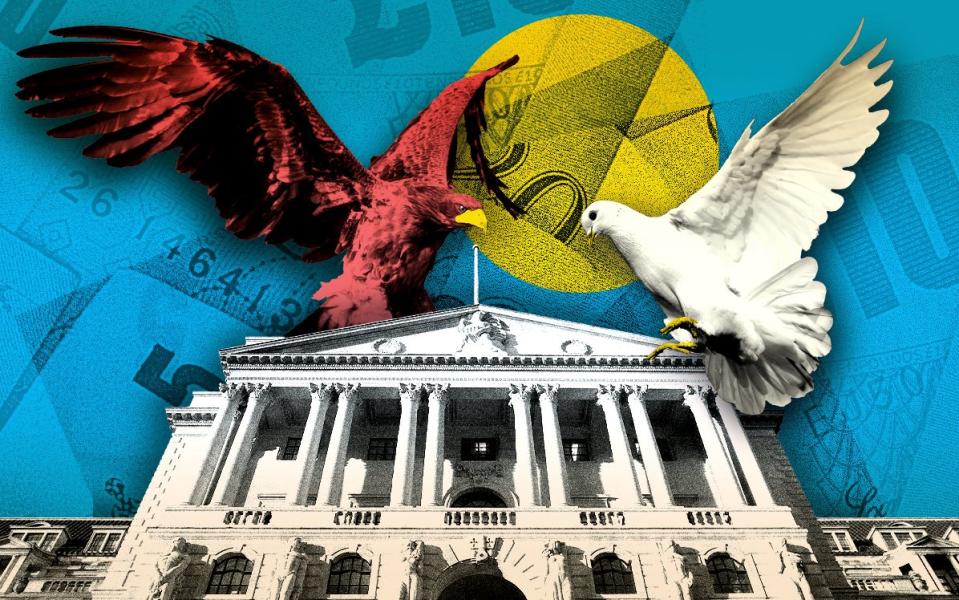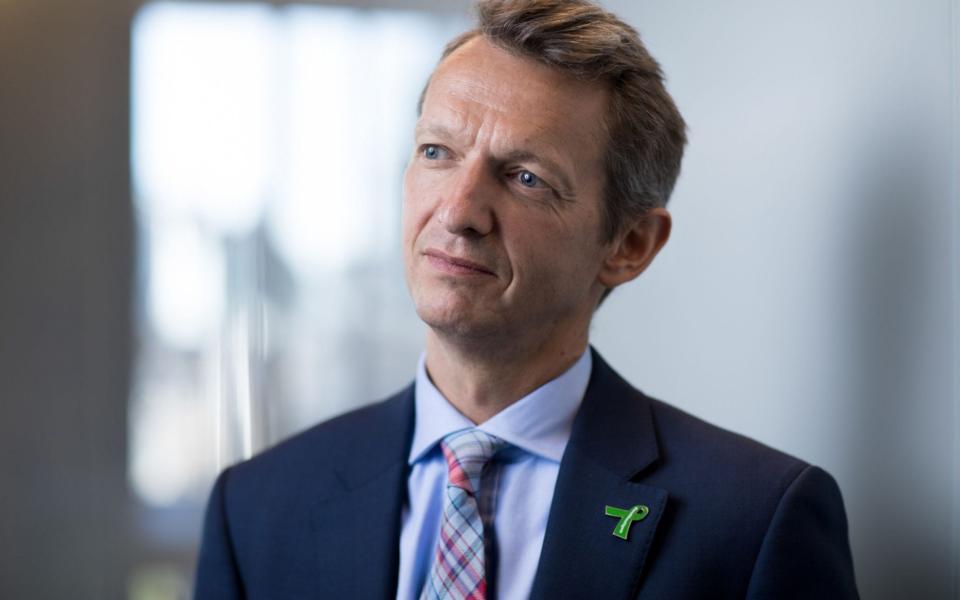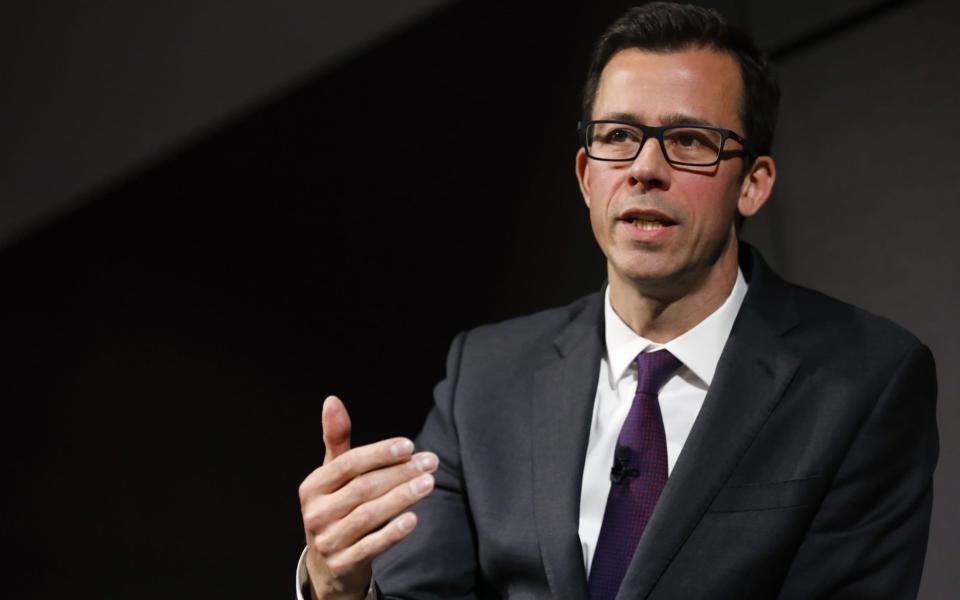Bank of England's hawk battles the doves over inflation threat

The first thing many of us did when lockdown lifted was to stumble, blinking, out of our homes and go for a haircut. Advanced reservations meant many hairdressers and barbers were booked out for weeks, with shaggy-haired Brits eager to get a trim.
Once customers made it through the door, they often found a nasty surprise: price hikes.
Women’s hairdressers charged about 6pc more on average than they did a year ago. For gents and children, the shearing bill was up by a tenth. The unhappily hirsute are not the only ones feeling the pinch. From building materials to petrol, costs are rising painfully. These price rises are among the most immediate symptoms of a resurgence in economic output as the UK and global economies roar back from the biggest recession in 300 years.
They also raise serious questions for the Bank of England.
Overall inflation is only at 1.5pc - below the 2pc target. But it appears to be coming up fast as the economy springs back to life. GDP is set to overcome last year’s 10pc collapse, getting back to its old size later this year.
So does the economy still need the emergency low interest rates of 0.1pc? And should officials cut short the £150bn round of quantitative easing, announced last November in the second lockdown?
The Bank is split.
In the hawkish corner is Andy Haldane, the chief economist. The sole member of the Monetary Policy Committee to vote to curtail QE by £50bn in May fears inflation will take off, with dire consequences.
The doves are led by Gertjan Vlieghe, an external member of the MPC, who thinks the main danger is tightening policy too soon, before the recovery is complete. Each set out their case last week, drawing up battle lines over the best way to get out of crisis mode.
The hawk

First up was Haldane. He is an optimist, as he made clear repeatedly last year and into 2021, predicting a “V-shaped” recovery, lashing “chicken licken” gloom-mongers and calling the economy “a coiled spring” of pent-up demand.
His bullish case was interrupted by the second wave of Covid, but appears to be being borne out now: consumer spending is surging, pubs and restaurants are buzzing, and other economists have been forced to play catch up, rapidly hiking their forecasts.
As growth is unleashed, Haldane expects companies to pass on rising costs. This “may then flow through to the wages that workers demand as headline inflation pressures pick up, and therefore inflation itself proves rather more persistent”, he told MPs. He invoked the “wagey-pricey spiral” of the 1970s and 80s, speaking at another event, though “not on the same scale”.
The big threat is that the recovery gets out of hand, inflation spikes and the Bank of England has to slam on the brakes.
“The situation we need to avoid like the plague is one in which inflation expectations adjust before we do, or where we wait for proof positive that effects on inflation are not transitory before acting, because in both of those cases that would be doing too little too late,” Haldane said.
It could force harder rate hikes, risking derailing the recovery, he argues. That pain could be averted by gently taking the foot off the accelerator now.
The dove

Vlieghe is not so certain. He acknowledges the recovery is impressive, but notes it is still far from complete. “Economic prospects are better now than they have been at any time over the past year, thanks to the ongoing rapid rollout of vaccinations, but we are not out of the woods yet,” he said. For him, the proof of a full recovery will be found only well after furlough has come to an end in the autumn.
Only if those workers are absorbed back into the economy, spare capacity is used up and inflation looks like it will pick up to above 2pc more sustainably in the years to come, then it will be time to tighten policy.
Vlieghe also highlighted the risk that the recovery could go wrong, potentially requiring several years of negative interest rates to dig the economy out of its Covid hole.
“Tightening too early would be a much costlier mistake than tightening too late. The international experience of the past two decades has taught us that premature tightening can lead to even more easing later, with below target inflation,” he said. “Monetary policy does, in fact, work quite quickly,” allowing the Bank to wait and see.
So who is right? Haldane is in a clear minority on the MPC. Barclays’ tracker of policymakers’ positions lists him as the only hawk, with Vlieghe and the other three external members as doves. The remainder - the Governor, Andrew Bailey, and his three deputies - are more modestly dovish.
A new economic era?
Fabrice Montagne, chief UK economist at Barclays, thinks Haldane is too confident: “While everything he says is possible, nothing of what he says can be evidenced by precedent or data. Data is really scarce when it comes to the quality and sustainability of the recovery.”
Worrying over inflation requires sustained extra lending on top of households spending their savings, he suspects, as well as furloughed workers to be fully reabsorbed into the jobs market. It will take time for this to happen, and if it does officials will still have plenty of time to act.
“You will see it coming,” Montagne says. “There is a whole arsenal here that will allow the Bank to cool the economy down, so I am not too worried about that aspect.”
By contrast Kallum Pickering, economist at Berenberg Bank, thinks Haldane might be on to something given the economy is going through “the fastest recovery in history”.
“Unhealthy economies do not respond this well to stimulus. The underlying economy is fundamentally strong,” he says. “Wherever I look, I see really good signs to be optimistic.”
Not only that, but Pickering suspects the UK could be on the brink of a new economic era, with the pandemic forcing a decisive break with the weak productivity growth and sub-target inflation of the decade following the credit crunch.
Households, companies and banks are in a stronger position than they were a decade ago. Confidence is surging. Governments have averted the sort of crunch which devastated the economy in the great recession.
Digital technologies have spread through the economy far more rapidly and successfully than anyone expected at the start of 2020, potentially setting the scene for much stronger growth, and so a withdrawal of emergency monetary policies.
“History will show we had a bad attack of economic pessimism after the financial crisis,” he says. “It took a pandemic to realise that.”
